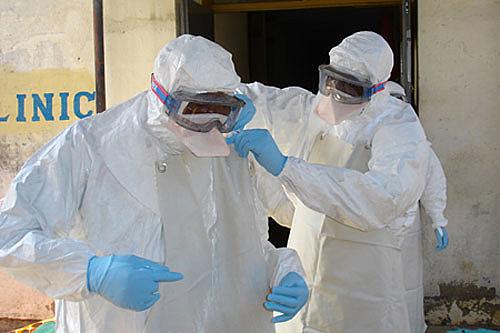The Third Ebola Outbreak in Uganda in 12 years

The resurge of Ebola in Uganda reminds me of the scouts’ motto, which we sang and recited every time we had a trip, Camporee or Jamboree. “Scouts be prepared, it’s our Motto, scouts, be prepared, it’s our motto”. I do not know whether, as kids, we were that prepared. But I seemed to enjoy the alertness of scouts immensely. The Baganda of Central Uganda, have a closer idiom, which literally translates that “A thief who comes to your house when you are prepared, does not steal as much property from you as that one who comes unawares.”
If the Ugandan ministry of health, or the line persons working within the health system had been alert, or prepared, Ebola, would not have succeeded in staying in the country for close to one month, undetected, in this current outbreak. This is the third outbreak of Ebola in Uganda in twelve years. This means Uganda has been having an Ebola outbreak almost every four years. This Ebola outbreak again, would not have sent us on a stampede for saving dear life, as it did in its first and second appearance. The problem is that, we were all again caught at our poor habit. Slumber. Slumber and snooze are the single most unfortunate hazards of African formal health systems.
Surprisingly, this sort of slumber, comes hardly six months since the Uganda national referral hospital launched a state of the art ICT facility for channelling, even the most basic health information to the hospital. Even without the said state of the art surveillance equipment, the vast number of mobile telephone connections in Uganda could have alerted the experts at the headquarters, of an Ebola outbreak. That takes us to believe that the National Ebola task force (NETF), established for the fisrt and second outbreaks was disbanded years after the last epidemic of Ebola hit us. Honestly I have not heard from it in a long time.
The most unfortunate thing with all Ebola outbreaks in Uganda is that the epidemic hits the most undeserved places of Uganda. They are those with the most dilapidated health facilities and away from the central health districts. Again, in all these situations, Ebola takes away some of the best and at times the only available health workers. First it was Northern Uganda, which was then battling with the after effects of Joseph Kony and a senseless war. It hit with such severity that it claimed one of the best doctors in Uganda, Dr. Mathew Lukwiya. Then it went on to Bundibugyo, South Western Uganda and claimed the only available best health practitioners. This time it has resurfaced from Kibaale and Kagadi, a place far in Western Uganda, where roads become virtually impassable when it rains. And it claimed a faithful nurse and her child. Al these health practitioners die in the line of duty.
We may sympathise with the first outbreak of Ebola in Uganda. The first time Ebola hit Uganda, it was in the year 2000. Dr Lukwiya had then received a phone call from an assistant called informing him that a mysterious illness had killed two of the hospital's student nurses, all of whom had begun bleeding or vomiting blood. Dr Lukwiya himself had witnessed the death of a third nursing student in Lacor. But there was virtually no knowledge on the management of Ebola in Uganda. This particular outbreak had a mortality rate of 42% (156).
In 2007, the Uganda Ministry of Health again, confirmed an outbreak of Ebola virus in the Bundibugyo District. After confirmation of samples tested by the United States National Reference Laboratories and the CDC, the World Health Organization confirmed the presence of the new species. Fortunately in early 2008, the Uganda Ministry officially announced the end of the epidemic in Bundibugyo, with the last infected person discharged about January 2008. This particular outbreak had a mortality rate of 34% (39 deaths).
Yes. This is the third time, Ebola is hitting Uganda. But there is a common denominator here.
"A mysterious illness has surfaced”
Some health experts may wonder whether Ugandans, or to be more precise, the health planners in this part of the world ever take their lessons from their past. Perhaps, they do, or maybe they do not. I say they do not because the anti – Ebola task force which is always created, de-created and resurrected immediately there is an outbreak, also seems to be unprepared. I would expect that all this time, it would have established a strong network of Ebola virus Human detectors at the district level, to help monitor any signs of Ebola. But such is not the case. Education about the source and symptoms, especially for health experts seems to have been insufficient.
Much is this particular outbreak may not be as devastating as the first two (hopefully, less than 20% mortality rate this time), it is visibly clear that those in charge choose to be reactive in every case of an outbreak of such magnitude.
Of course some credit should be given to the Uganda Ministry of Health, together with its partners, the American based CDC and WHO. They have in all these situations reduced the number of primary cases, reduced the number of secondary cases, reduced harm from the outbreak and tried to prevent reoccurrence. But they need to know that the disease surveillance system in Uganda is dysfunctional.
There is something wrong with the way we apparently do our things in a hurried and haphazard manner. And most times, when we rush, there are bound to arise grave mistakes. This is just because we failed to prepare for a thief who robs not our property, but human life.
